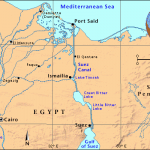
Deprecated: trim(): Passing null to parameter #1 ($string) of type string is deprecated in /home/aoiusa/public_html/wp-content/plugins/sexybookmarks/public.php on line 388
Deprecated: trim(): Passing null to parameter #1 ($string) of type string is deprecated in /home/aoiusa/public_html/wp-content/plugins/sexybookmarks/public.php on line 394
Deprecated: trim(): Passing null to parameter #1 ($string) of type string is deprecated in /home/aoiusa/public_html/wp-content/plugins/sexybookmarks/public.php on line 400
Source: Spirit and Life | Monsignor Ignacio Barreiro-Carámbula
If we promote the family and the related idea of generosity with life, we have to be concerned with the ability of young couples to form and raise their families. In order to raise children, a family needs a degree of economic stability; and even more it needs a real non-inflationary economic growth that steadily creates jobs, and also allows for the reasonable increase of salaries in real terms. As a consequence, we should promote an economy that will not be depressed by the obligation of paying off our growing public debt. It is time to discuss the moral injustice of constantly increasing the public debt limit.
The troubling situation of skyrocketing public debt has to be seen within the context of the current economic crisis. This crisis has short term causes in the mismanagement of financial institutions in the U.S. as well as in the housing bubble that was produced, in part, by government programs that decoupled the normal risk calculations from loan interest rates and policies. But it also has long term causes, which include the reduced birth rate and the constant growth of public spending, which in turn leads to a ballooning debt. The reduced birth rate decreases the effective demand of goods and services and puts a growing pressure on the social security systems, as fewer active workers have to sustain a growing number of retirees.
On both sides of the Atlantic the erroneous theories of John Maynard Keynes have been, and still are, being put into effect. He taught that in times of economic crisis consumer demand must be stimulated by government investment, and that an “attitude of saving” must be discouraged, as was recently noted by Ettore Gotti Tedeschi in L’Osservatore Romano.
A constant increase of the public debt “ceiling” leads to fiscal irresponsibility as the government becomes addicted to reckless spending, expecting that the debt limit will be constantly raised by Congress. Governments, like private persons, should limit their expenditure to their income.
If tax revenues are not sufficient to cover a nation’s budget, the government has three alternatives: they can reduce spending, increase taxes, or increase the money supply, which causes inflation. In order to stimulate their troubled economies, governments on both sides of the Atlantic have resorted to printing money and borrowing to cover their reckless spending, causing a very grave injustice to be passed on to the next generation.
For several reasons, there is a moral imperative to reduce the budget, but we will examine just two key reasons here. First, an expanding budget takes up a growing percentage of the wealth of a nation, and as a consequence, it tends towards socialism and totalitarianism. Second, more government spending is not the answer to our social, economic, or cultural problems, especially if those funds are administrated by a liberal socialist elite. Most of the social and cultural problems are of a moral nature, so it is only in the measure that the members of society are educated to live in accordance with the Law of their Creator that those problems can truly be addressed. In our current historical circumstances, we cannot expect that the government will exercise a positive leadership role in the substantial education of the population. Instead we should insist that the responsibility of addressing the social ills of society be left in the hands of the members of that society. To fulfill this mission, citizens must be liberated from undue government control, and must retain the necessary economic means to accomplish this mission. Government should not appropriate the economic means necessary to address the very real social and cultural problems that citizens are dealing with every day. This is in harmony with the principle in Catholic social doctrine known as subsidiarity.
In accordance with natural law and the social teachings of the Church, we have an obligation to help the poor and disadvantaged. But the best way to help them is not to entrust liberal civil servants with vast amount of financial resources. We have seen all too often that politicians would use funds intended to help the poor used rather as a means of social engineering, to construct a socialist and liberal society. The growth of government and the rise of the “transfer society” have, for many who were supposed to be helped by social programs, undermined a strong work ethic, and have replaced an ethos of responsibility with an ethos of dependence. We have to remember how this ethos of dependence has deep roots in European societies. Virtue and civil society have suffered in the process, as has economic progress.
We should also keep in mind that the best way to help the poor is not through financial entitlements but through a modestly but consistently growing economy that will generate new jobs. Civil society should also promote the necessary training to obtain those jobs. In the Gospel, the Lord says the greatest commandment is to “love the Lord your God with all your heart and with all your soul and with all your mind.” This means that we have to love God and our neighbor with all our intelligence, which means that we apply all our technical knowledge to serve the poor and the disadvantaged.
Increasing taxes reduces the incentives to create wealth and gives more power to government, which a risk that we have to avoid at a time when contemporary democracies are constantly sliding towards totalitarianism. The increase of taxes is a consequence of the massive growth of government in areas outside its core competency. The burden of proof regarding the benefits of expanding the government beyond its primary functions of maintaining law and order is on the proponents of such expansion, and it should suffice to say that the evidence is sorely lacking.
With regards to high inflation we have to consider that it tends toward immorality, social conflict and even to social collapse, which can in turn lead to the establishment of totalitarian regimes, as happened in Germany in early thirties. The main victims of inflation are those who live on fixed incomes, namely, the elderly and the poor. A high rate of inflation leads to immorality for many reasons. It leads to constant speculation. It destroys the incentive to save, which is a relatively safe way to generate capital and give some degree of economic security to families. Saving also has the great value of teaching us the importance of delayed gratification. As capital is eroded by inflation, interest rates have to go up to compensate, leading to absurd rates of interest that limit investment. If we limit the possibilities of investment we also limit the possibilities of real economic growth.
To counter the tendency towards personal savings, governments have resorted to very low, even zero percent, interest rates. This is done in order to augment the current demand for good and services, but it does so at the cost of sacrificing the future, because it severely limits a normal person’s ability to generate capital. Zero percent interest rates are factually equal to a transfer of wealth from the one who is a virtuous saver to the one who has become indebted. This really is an injustice because it is a hidden tax on poor savers, and a forced transfer of funds to over-indebted states, business people and bankers. It is evident that the reduction of interest rates mainly affects the poor savers because the well-to-do normally have more flexibility to protect the returns of their capital.
Is not uncommon to hear political, civic, and religious leaders speak of “intergenerational solidarity”. But to increase public debt is to negate this solidarity. Instead of bequeathing a patrimony, which is what most sane societies have tried to do in the past, we are leaving our debts to future generations. We are asking them to pay the principal and the interest on our debt with their labors. This is akin to forcing them into a form of indentured servitude to us, and it will last long after we have gone to meet our Maker. By law, one can reject an inheritance if has more liabilities than assets, but a citizen cannot reject public debt if he wants to remain a citizen: And he probably will want to remain an U.S. citizen because the alternatives outside of this country do not look very encouraging. Americans would do well to remember the wisdom of George Washington, who, in his farewell address in 1796, denounced “ungenerously throwing upon posterity the burden which we ourselves ought to bear.”
Anyone who is concerned with future generations has not only the right, but the obligation, to insist that it is immoral to keep piling debt on the shoulders of our children and grandchildren. And piety is no substitute for policy: Any increase in spending in one area must be paid with serious reductions in others, starting with the defunding of and/or the dismantling of the health care bill, known as the Affordable Care Act. Further, entitlements like Social Security, Medicare and Medicaid have to be brought under control. It is evident that a decreased birth rate leads to an increase in the age or retirement—it is just a question of simple accounting. It is also clear that the nation’s debt is a national security risk, because nations that do not have America’s best interests at heart can use their ownership of our debt to exert pressure and influence our policy.
The current generation must now accept as obvious that it has arrived at the point at which it can no longer pay its debts. To put it in simple terms, we can’t “kick the can down the road” anymore, because we’ve come to the end of the road. Defaulting on our debt will destroy the contemporary illusions of society regarding the competency of contemporary governments to effectively govern. It will convince many members of society that the federal government has to reduce itself to the primary functions of the state which are the maintenance of law and order, and leave many other meritorious but secondary functions in the hands of the states or local communities, applying the traditional principle of subsidiarity.
Irresponsible economic policies generate a double jeopardy for future generations. First, their inheritances are lessened by policies that affect the generation of capital, like zero interest rates. Second, and worse, because of our profligacy we are piling on them a massive debt that they will never be able to pay, and which they should not have to pay. Both policies are deeply immoral and are gravely offensive to the responsibility that we have to those who follow in our footsteps.

Since September 1998, Msgr. Barreiro has been the Executive Director of the Rome office of Human Life International. In Rome, he started an apostolate with priests and seminarians from all over the world who are studying in the Eternal City. Msgr. Barreiro has published hundreds of articles on theological and life issues, and historical subjects in popular and scholarly publications. He was appointed a Chaplain of His Holiness on March 26, 2004.







